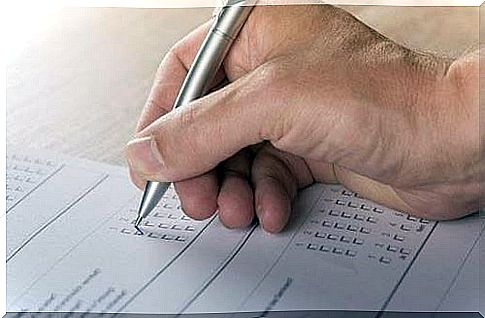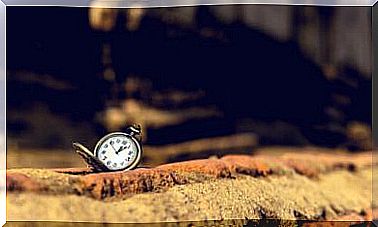Rathus Assertiveness Test

The Rathus assertiveness test was developed based on a need detected in the 1960s. Assertiveness, as a social and communication skill, is essential for our mental well-being. Knowing how to correctly express thoughts and needs, defend rights, etc., optimizes our relationships with others and, in turn, acts as a nutrient for our self-esteem.
Therefore, we are facing a dimension that does not always come from the “factory”, but that should always be developed. Thus, it is interesting that the assertiveness training was one of the first techniques developed by behavioral therapists in the late fifties and early sixties.
The experts were clear that it was necessary to offer guidelines and strategies to people in this matter. They knew that when humans communicate and behave assertively, aggressive behaviors are reduced. In addition, respect is praised and the identity, values and self-confidence of each one are protected. Without these areas, without a good level of assertiveness, we are in many cases doomed to suffering.
This instrument, developed by Dr. Spencer A. Rathus in 1973, remains as useful as it is interesting. Thanks to it, we can measure our competence in terms of assertiveness. Let’s see more data below.

Rathus assertiveness test
The Rathus assertiveness test was developed more than 40 years ago. However, it is still just as valid, reliable and useful in giving us information about a person in this area. It should be noted, however, that during these years it has been updated (Thompson and Berenbaum, 2011) and that, today, it is also interesting for another aspect that Dr. Spencer Rathus himself pointed out at the time.
There are people who perceive themselves as highly assertive, when in reality what they are including in their behavior and communication style is aggressiveness. This instrument, therefore, also gives us information on whether the subject has precisely an aggressive and non-assertive profile. On the other hand, the Rathus assertiveness test was conceived with another purpose: to serve as a training scale.
What does the Rathus test measure?
It offers us information on the following points:
- This test measures the level of assertiveness of a person.
- It provides us with information on whether or not you usually defend your rights, ideas and needs.
- Likewise, we obtain data to know if you are a passive person or on the contrary, aggressive.
- Another interesting detail of the Rathus assertiveness test is that the information we receive will help us to know which areas we should work on. There are those who, for example, have low assertiveness due to their social anxiety. This would therefore be an aspect that we should attend to.

What is the Rathus assertiveness test?
The Rathus scale consists of 30 items (questions) with 6 response options (ranging from very characteristic in me to not characteristic at all). This test gives us a final score, as well as a percentile.
The questions are as follows.
- 1. Most of the people around me seem to be more aggressive and assertive than I am.
- 2. I have been hesitant to make or accept appointments out of shyness.
- 3. When the food served in a restaurant is not made to my satisfaction, I complain to the waiter or waitress.
- 4. I am careful to avoid hurting other people’s feelings, even when I feel like they have hurt me.
- 5. If a salesperson has gone to great lengths to show me clothes or items that I don’t like, it’s hard for me to say no.
- 6. When asked to do something, I insist on knowing why.
- 7. I almost always look for firm and forceful arguments when I have a conversation.
- 8. I strive just to get ahead, without attracting attention.
- 9. To be honest, people often take advantage of me.
- 10. I like to start conversations with strangers.
- 11. I often don’t know what to say to the people I am attracted to.
- 12. I hesitate to make telephone calls to commercial establishments and institutions.
- 13. I prefer to apply for a job or admission to a course by writing emails than going through personal interviews.
- 14. I am embarrassed to return something I have purchased.
- 15. If a close relative bothers me, I keep quiet and hide it.
- 16. I have avoided asking questions for fear of sounding stupid.
- 17. I don’t like discussions, they block me.
- 18. If a recognized teacher makes a statement that I believe is incorrect, I will correct it in public to make my point of view clear.
- 19. I avoid arguing about my salary during job interviews.
- 20. When I’ve done something important or worthwhile, I manage to let others know about it.
- 21. I am open and frank about my feelings.
- 22. If someone has been spreading bad and false stories about me, see that person as soon as possible to talk about it.
- 23. I often have a hard time saying no.
- 24. I always tend to repress my emotions.
- 25. I never hesitate to complain about bad service in bars or restaurants.
- 26. When I receive a compliment I don’t know what to say.
- 27. If a couple near me in a theater or at a conference were talking loudly, I would ask them to be quiet or to carry on their conversation elsewhere.
- 28. Anyone who tries to be better than me at something should be prepared to deal with me.
- 29 . I am quick to express an opinion.
- 30. There are times when I just feel unable to say something.

Rathus test assessment
To assess this test, the evaluators know that there are questions that score positive and others negative. The sum of each point will give us a figure and, from it, we will know in which percentile we are; well in that of an assertive person, not at all assertive, moderately assertive or, on the contrary, aggressive.
Next, the psychologist will explain to us what areas we should work with, with what tools and what guidelines would be the best based on our personal needs.
Finally, it should be noted that assertiveness is a matter of practice, it is also managing our insecurity and social anxiety to set limits and relate to others in a more secure and decisive way.









